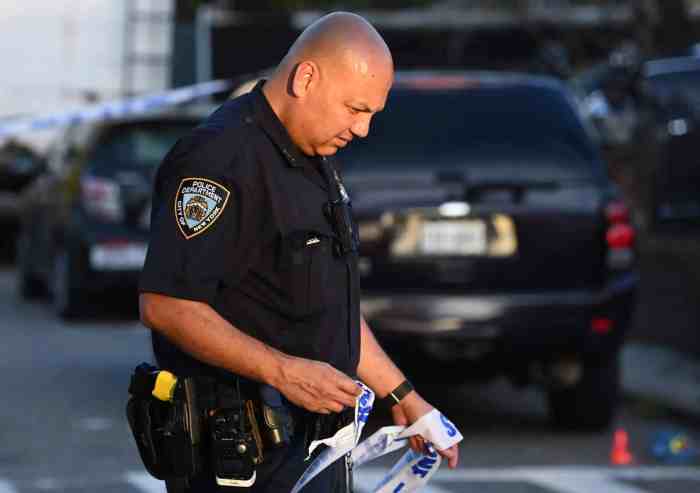Caribbean
More than US$2 billion is spent on the annual food import bill by CARICOM countries, which have a combined population of only six million people. Dr. Richard Cox, capacity building officer of the UN Convention to Combat Desertification. “It is worth noting that CARICOM itself produced the figures to show that our import food bill runs over US$2 billion every year.
His comments were part of a capacity-building workshop on the NAP/IFS Alignment Process in the Caricom sub-region. “A place that has such great soil is importing $2 billion and more of food every year. What sort of food security are you talking about when you have such an import bill and the English-speaking Caribbean is about six million people?”
This was significant and stakeholders must get involved in proper sustainable land management and finding solutions. The situation is “particularly acute” in Small island Developing States (SIDS). UNDP resident representative Richard Blewitt said like most SIDS, Caribbean countries faced challenges originating from their small size and geographical location, small economies, limited infrastructure, and high vulnerability to natural disasters such as hurricanes.
The workshop was held at the Capital Plaza Hotel, Port-of-Spain, by the Ministry of the Environment and Water Resources, in collaboration with the UN.
Bahamas
The government of the Bahamas has deported to Cuba 24 refugees who had applied for asylum in the United States and other countries.
Campaigners in the U.S. have accused the Bahamas of putting the lives of the refugees in danger by sending them back to the communist-run island. The Bahamas has become a transit point for economic and political refugees who arrive by boat from Cuba and Haiti.
The authorities say the archipelago cannot afford to house all refugees. Dozens of refugees have been deported by Nassau to Cuba in past years. ‘Beaten, tortured, deported.’
The overwhelmingly anti-communist Cuban community in Miami has campaigned against the refugees’ return to Havana.
Ramon Saul Sanchez, leader of the Democracy Movement pressure group, said some 40 Cubans were being kept in squalid conditions in Bahamian detention centers.
Foreign Affairs Minister Fred Mitchell in a statement said he would also hold the protestors responsible “if something should jeopardize the safety and security of our personnel and facilities in Florida”.
Mitchell confirmed that 24 people, all Cuban nationals were repatriated to their home country on Friday, August 16, making a total of 64 for the year so far. He said there are 20 others who will be returned home shortly and that 275 Haitian migrants were returned to Haiti recently as well, making a total of 1848 repatriated so far this year.
Barbados
Barbados Opposition MPs are speaking out against the government’s decision to make UWI Cave Hill Campus students pay their own tuition fees. Finance and Economic Affairs Minister Chris Sinckler in his 2013/14 budget presentation recently, said that effective 2014, Barbadian students pursuing studies at the university’s three campuses will be required to pay their own tuition fees, while the government continues to fund economic costs.
Sinckler said it will save Barbados BD$42 million a year. Making his contribution to the budget debate in the House of Assembly this week, Sinckler said: “The University of the West Indies could first outsource some of its security arrangements, it could outsource the book-shop, it could outsource the Halls of Residence, it could outsource the upkeep of its grounds and building maintenance, all at a cheaper cost.”
“Why doesn’t the government sit down with the university administration and discuss these issues?” he asked. He said some of the courses offered at Cave Hill could be done at the Barbados Community College (BCC) at much lower economic and tuition costs and he further noted that government should not be subsidizing remedial or preliminary courses as part of UWI’s regular program.
Guyana
Guyana is seeking new foreign investors to help build a hydropower project after a key U.S. partner pulled out when opposition legislators voted against providing extra funding.
President Donald Ramotar says he will keep pursuing a project expected to end 40 years of rolling blackouts, generate 170 megawatts and provide cheaper and cleaner electricity, especially in jungle communities.
Ramotar’s announcement came as opposition legislators said they will continue to oppose the project until the government justifies its costs and shares engineering designs.
New York based Sithe Global has said it pulled out because the US$840 million project did not receive unanimous support. The company noted that it worked on the project for 16 years and spent more than US$16 million, in addition to US$15 million that government spent.
Haiti
Police say they have arrested two men following violent attacks on a British Red Cross mission chief and his Haitian gay partner while they were organizing a ceremony in the capital.
Police Inspector in the Petion-Ville district, Patrick Rosarion, told the Haitian website HCNN that a mob in the Bourdon area attacked a group of gay individuals recently while they were attending a betrothal ceremony.
“When people in the neighborhood learned about what was going on, they launched an attack against the house with Molotov cocktails and other means,” he said.
Two cars, belonging to participants, were burnt. Police said gunshots were also heard in the area during the clashes.
Police said that at least 40 people were attending the ceremony being held at the office of the International Committee of the Red Cross.
Gay rights activists denounced what they call the growing homophobia that is developing in the French-speaking Caribbean Community (CARICOM) country. Charlot Jeudi, who heads Kouraj (Creole word for Courage), a gay rights group in Haiti, called on the authorities to bring the aggressors to justice.
In recent weeks, several Protestant Christian groups have organized street demonstrations against gay activities in the capital Port-au-Prince and in provincial areas. The Haitian government and police have publicly committed to protect gay people from violence.
Jamaica
Two Jamaican cops are to appear in court in relation to the murder of three men in Shrewsbury, Westmoreland.
Twentyeight-year-old fire fighter Andrew Brydson; his brother, 24-year-old Triston Brydson; and their cousin, 38-year-old Kingsley Green, were shot and killed on March 15 during what the police said was a shoot-out. The director of public prosecutions ruled recently that Hines and Campbell be charged with the murders.
They have been off front-line duty since the controversial shooting. It is understood that the policemen have retained attorney-at-law Peter Champagnie to represent them. The Independent Commission of Investigations (INDECOM), which probed the case, had reported that the police indicated that a team was on patrol in Shrewsbury when they received a report that gunmen were at a shop in the area.
It was further reported that they then proceeded to the shop, and on entering the establishment a man was seen with a gun in his hand, which he allegedly pointed at a policeman. The policeman reportedly opened fire, shooting the man who fell to the ground. It was also alleged that the other two men opened fire on another policeman at the scene, who returned the fire hitting both men.
St. Kitts
The St Kitts-based Eastern Caribbean Central Bank (ECCB) said it has assumed control of two indigenous banks in Anguilla noting the move is designed to ensure the stability of the banking system in the entire Eastern Caribbean Currency Union (ECCU).
ECCB Governor Sir Dwight Venner, in a statement, confirmed that the operations of the Caribbean Commercial Bank (Anguilla) Limited (CCB) and the National Bank of Anguilla Limited (NBA) had been taken over.
He said the circumstances that led to this action include the fact that the economies of the ECCU are mainly dependent for their growth on the tourism and construction and that the global crisis has had a major impact on these sectors. In addition, Sir Dwight said that growth in Anguilla “has virtually collapsed falling from an average of 15.8 per cent between 2005 and 2007 to an average contraction of 5.5 per cent for the period 2008 -2012.”
He said also the banks have seen their non-performing loans escalate to levels beyond the guidelines set by the Central Bank and this in turn has resulted in the banks not meeting their capital requirements. The ECCB governor said the decision to take over the banks is also intended to stabilize and restructure both banks and return them to a state of normality as well as protect depositors and creditors.
Trinidad
The International Monetary Fund (IMF) has maintained a 1.5 per cent real gross domestic product (GDP) growth for Trinidad and Tobago in 2013, with risks slightly to the downside, should development spending be under-executed. In March, the Fund had projected its 1.5 per cent estimate based on the maintenance activity expected in the upstream energy sector.
The Central Bank has projected 2.5 per cent economic growth, one per cent economic growth, one per cent greater than the IMF’s. The Bank said it was confident that the coordination between the Ministry of Energy and the upstream energy companies would work together to mitigate the risks associated with the planned shutdowns.
This latest IMF assessment was made after the Fund’s Executive Board concluded the 2013 Article IV consultation discussions with T & T in June.
In a release recently, the Fund said the economy of Trinidad and Tobago is poised for a modest recovery in 2013, after disappointing growth in 2012 that was due largely to supply constraints, including maintenance operations in the energy sector and an industrial dispute in the non-energy sector.
Executive directors welcomed the signs of economic recovery, fuelled by growth of the non-energy sector, with macroeconomic policies appropriately supporting the recovery in the near term given downside risks. Over the long term, the Fund said, the policy priority should be to recast fiscal policy in the context of the country’s non-renewable resources while pursuing structural reforms aimed at diversifying the economic base.
Trinidad
Crime in Trinidad and Tobago is down by 34 percent when compared to last year’s figures and it is at the lowest it has been in the past eight years.
This is according to acting Commissioner of Police Stephen Williams during the Police Service weekly press conference recently.
Williams noted that Trinidad and Tobago hit an all-time high in murders in 2008 with 547 murders. The figure in 2011 was 352 and 2012 was 379 and as of August this year the toll stands at 245.
“From a policing perspective, from the statistics 2013 has been a successful year. It is not in the perception of the public, the general public wants the society to be free of violence and to get to that point all law-abiding citizens and police must work together,” Williams said.
He said the public’s assistance is needed along with the media and stakeholders in the fight against crime.
Compiled by Azad Ali


















